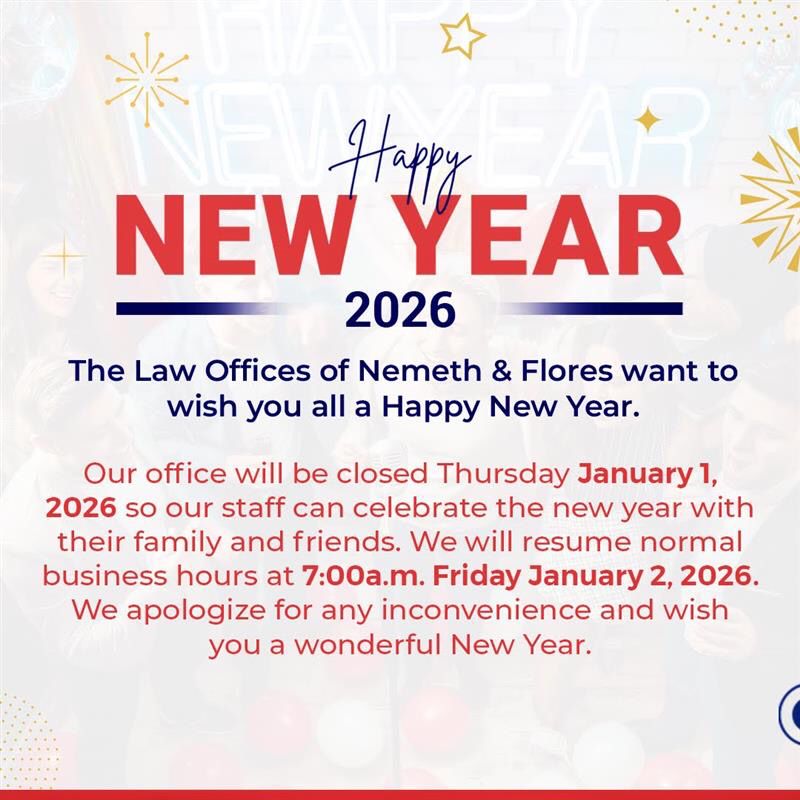Table of Contents
Have you received penalties for unpaid federal taxes? If you have, please read on. When a taxpayer is unable to pay their Federal taxes in time, they risk being subject to various penalties, but that doesn’t mean there is no way for redemption. The IRS has various provisions to help taxpayers clear their dues, and can even abate penalties and interest. Continuing on the subject, in this blog post, we present all you need to know about IRS penalty and interest abatement. Read on.
Penalty Abatement
IRS penalty abatement is a provision for the removal of certain IRS penalties. If you believe that you shouldn’t be required to pay certain Federal penalties or interest, you may apply for IRS penalty abatement. If your request is approved, the IRS will remove all of your penalties. If you want to apply for penalty abatement, you can contact The Law Offices of Nick Nemeth. Two common penalties that can meet criteria for penalty abatement are:
- Failure-to-File: A failure to file penalty may apply if you did not file by the tax filing deadline.
- Failure-to-Pay: A failure to pay penalty may apply if you did not pay all of the taxes you owe by the tax filing deadline.
How to Calculate
Although both the penalties are capped at a maximum of 25% of the unpaid tax, they are calculated differently. The Failure-to-File penalty is generally 5% of the unpaid tax for each month by which the return is late. The Failure-to-pay penalty is generally .5% of the unpaid tax for each month it is late. The IRS will assess penalties for partial months. If, for instance, one owed $100,00.00 on their individual income tax return and filed an extension, but paid the total by October 15, the penalty would be approximately $3,000. If, however, in the same scenario, the taxpayer does not file an extension, the failure-to-file penalty may be capped, resulting in a much higher IRS liability.
Don’t Let IRS Tax Problems Keep You Up at Night
Speak with an experienced tax attorney and take the first step toward peace of mind.
Penalty Abatement Options
There are three main avenues to obtain penalty abatement:
1. First Time Penalty Abatement: You may qualify for administrative penalty relief from penalties if:
- You did not previously file a late return or have no penalties assessed against you for the previous 3 filing years.
- You are current in your filing requirements or you have filed an extension of time to file for the current year.
- You have paid or have arranged to pay any tax due.
2. Penalty Abatement Due to a Reasonable Cause:
- Death of a family member or someone very close to you
- Unavoidable absence such as being in rehab or jail
- Held hostage in another country
- Destruction of your records due to fires, floods, or other casualties
Interest Abatement Options
The IRS charges interest on all unpaid balances. Interest accumulates daily and is charged until the balance is paid or settled. If any of the tax and/or penalties are reduced, the IRS automatically reduces the related interest. Interest is statutory and cannot be reduced or removed for reasonable cause or as a first time abatement. The only way that the IRS will reduce the amount of interest that you owe is if the interest is due to an unreasonable error or delay by an IRS officer or employee in performing a ministerial or managerial act. To check if you qualify for interest abatement, you should consult with a tax attorney like The Law Offices of Nick Nemeth.
Wrap Up
Now that you know the basics of an IRS penalty abatement and the eligibility criteria, speak with an experienced IRS tax attorney at The Law Offices of Nick Nemeth to find your way out of an IRS penalties or interest. We have a team of experienced IRS tax lawyers and professionals with proven results in dealing with all types of IRS tax-related issues, especially penalty and interest abatement. For a confidential, no-obligation consultation, fill out our contact form or simply call (972) 426-2553



